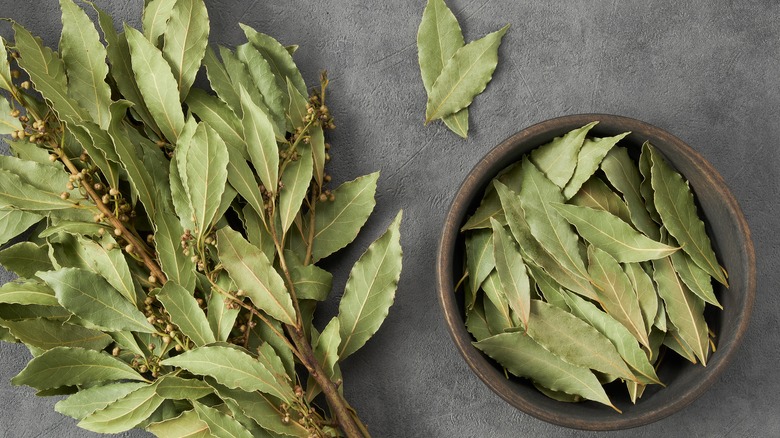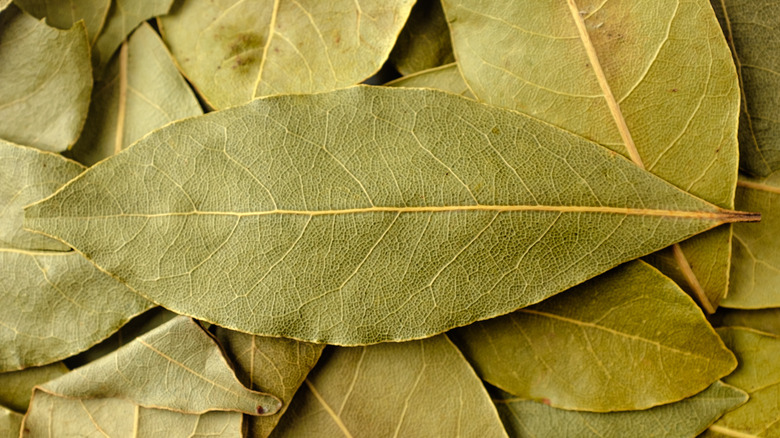Turns Out, Bay Leaves Don't Actually Last Forever
Buried deep within your spice cabinet, you'll probably find a container of dried bay leaves that has been a fixture there for years. Never changing color, never changing texture, you might assume that the humble bay leaf is an herb that lasts indefinitely — unfortunately, you'd be wrong to make that assumption. The truth is that just like any other ingredient, bay leaves do eventually meet their demise.
Plucked from the bay laurel tree, Great British Chefs explains that the herb is more than just ornamental. In fact, it's commonly used as part of aromatic herb bundles left to simmer in stews and braises to add another dimension of flavor. Like a leathery-looking basil leaf, bay leaves instead boast earthier flavors and nuances of pepper and mint that translate into a slight bitterness, which can provide a sense of balance in heartier dishes. Why, then, does adding a bay leaf often seem like an unnecessary (and less than flavorful) addition to recipes?
Although they can be available fresh, bay leaves are more commonly sold as whole dried leaves or even as a pulverized mixture. However, according to La Cucina Italiana, when dried, their aroma becomes a bit more muted. As for less intense flavors, that doesn't depend so much on whether the herb is fresh or dried, but rather on how long the herb has been sitting around in the pantry.
Whole dried leaves start losing potency after a few months
It's evident that fresh ingredients spoil faster than those that are preserved through methods such as drying. But, just because many dried herbs and spices have a longer shelf life, that doesn't mean they are totally exempt from ever being tossed. That said, rather than going bad or spoiling, McCormick shares that the longer seasonings sit in your pantry, the less aromatic and flavorful they'll become — especially when it comes to ground spices and whole, leafy herbs.
When stored properly in an airtight container away from sunlight and heat, Does it Go Bad? explains that bay leaves will provide the most intense flavor and aroma within the first three months of usage. That said, Still Tasty shares that the herb can still be used for up to three years, so long as you keep in mind that the flavors have started to degrade, which might mean adding more bay leaves to a recipe or having to revive some of their potency through toasting.
Naturally, since fresher dried bay leaves pack more of a punch than decades-old herbs, Food & Wine advises investing in good quality bay leaves and actually making a point to use them. That means that any leaves that don't have a fragrant, eucalyptus-like aroma when snapped in half should be discarded. A lacking of perfume will only result in less vibrant tastes, and why bother working with bay leaves that can't deliver another dimension of flavor?

